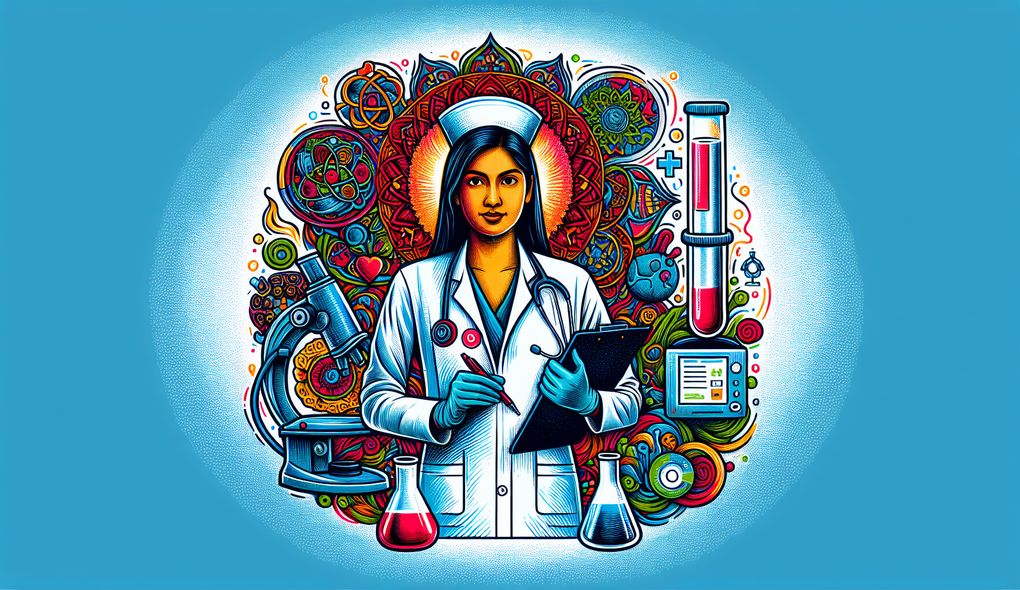How do you prioritize your tasks when working on multiple clinical trials?
INTERMEDIATE LEVEL

Sample answer to the question:
When working on multiple clinical trials, I prioritize my tasks by assessing the urgency and importance of each trial. I create a to-do list and rank the tasks based on their deadlines and impact on patient safety. I also consider the resources and support available for each trial. For example, if I have a trial with a strict deadline and limited resources, I would prioritize it over others. Additionally, I communicate with the research team and other healthcare professionals to align priorities and ensure smooth coordination. By constantly evaluating the status of each trial and adjusting my priorities, I am able to effectively manage multiple clinical trials.
Here is a more solid answer:
When faced with multiple clinical trials, I employ a systematic approach to prioritize my tasks. First, I assess the urgency and complexity of each trial, taking into account the impact on patient safety. I create a detailed schedule and to-do list, breaking down each trial's tasks into smaller manageable steps. By doing so, I can identify critical milestones and deadlines for each trial. To ensure effective communication and collaboration, I regularly check in with the research team, physicians, and other healthcare professionals involved in the trials. This allows us to align priorities, share information, and address any potential conflicts in scheduling or resource allocation. Additionally, I rely on my strong attention to detail to accurately document patient progress, adverse events, and other essential data in the clinical trial management system. By consistently staying organized, maintaining open communication, and paying close attention to details, I can successfully navigate the complexities of managing multiple clinical trials.
Why is this a more solid answer?
The solid answer expands on the basic answer by providing specific details on how the candidate utilizes their organizational skills, communication skills, attention to detail, and collaboration abilities to prioritize tasks when working on multiple clinical trials. The answer also highlights the importance of creating a detailed schedule and regularly checking in with the research team and other healthcare professionals to ensure effective coordination. However, the answer could further improve by including more examples or anecdotes from past experiences.
An example of a exceptional answer:
Managing multiple clinical trials requires a meticulous approach and effective use of various skills. To prioritize tasks, I begin by thoroughly assessing each trial's requirements, patient acuity, and study protocols. I then develop a comprehensive project plan, outlining key milestones, deadlines, and resource needs for each trial. This plan serves as a roadmap for managing my tasks and ensuring smooth progress. Additionally, I employ advanced organizational techniques, such as using project management software, to track and prioritize tasks efficiently. To maintain open communication and collaboration, I schedule regular meetings with the research team, healthcare professionals, and study coordinators to discuss progress, address any challenges, and align priorities. Furthermore, I rely on my strong attention to detail to carefully document patient data, adverse events, and protocol deviations to ensure accurate reporting. By continuously evaluating the status of each trial, adjusting priorities as needed, and leveraging my organizational skills, communication abilities, attention to detail, and collaboration techniques, I can successfully navigate the demands of managing multiple clinical trials.
Why is this an exceptional answer?
The exceptional answer further expands on the solid answer by providing additional details on the candidate's approach to managing multiple clinical trials. The answer mentions the use of project management software, scheduling regular meetings, and continuously evaluating the status of each trial to ensure effective prioritization. The candidate also emphasizes the importance of accurate documentation and reporting. Overall, the answer demonstrates a high level of expertise and proficiency in managing multiple clinical trials.
How to prepare for this question:
- Familiarize yourself with clinical trial management software and electronic health records to effectively manage tasks and track progress.
- Develop a strong understanding of Good Clinical Practice, FDA regulations, and ICH guidelines to ensure compliance with protocols and regulations.
- Enhance your organizational skills by creating detailed project plans and using techniques such as to-do lists and project management tools.
- Practice effective communication and collaboration by role-playing scenarios where you need to align priorities and address conflicts with the research team and other healthcare professionals.
- Highlight your attention to detail by focusing on accurately documenting patient progress, adverse events, and other essential data during clinical trials.
What are interviewers evaluating with this question?
- Organizational skills
- Communication skills
- Attention to detail
- Ability to prioritize tasks
- Collaboration

